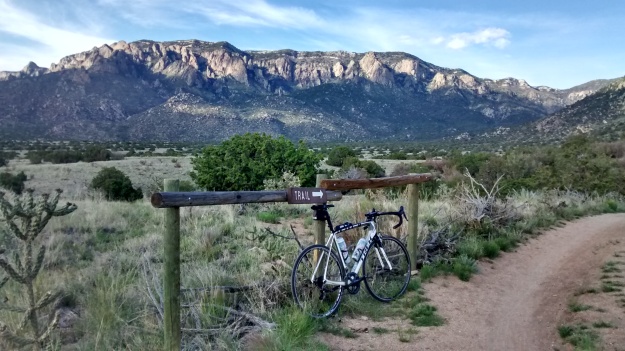No, it’s not rust:
and it’s not a “fade” paint job
(although, if I do say so myself, it goes rather
nicely with the toestraps, saddle and straps and trim on the bags)
and it’s not an attempt to out-hipster the
hipsters
That reddish-brown “mist” you see is dirt. Not sooty, dirty city dirt. No, it comes from soil:
Specifically, it’s the residue of a trail—one I
hadn’t ridden in more than thirty years.
When I was a Rutgers student, I used to pedal along the Delaware and Raritan Canal
towpath. Connecting the two rivers in
its name, it opened in 1834.
The trail wasn’t, of course, wasn’t used for
cycling, running or hiking in those days.
If someone had the leisure time for such things, he or she wasn’t doing
them: Aerobic fitness wasn’t, shall we
say, terribly fashionable among the gentry.
And anyone who worked along the canal, or in the industries that sent
barges down its waters, didn’t have the time or energy for such things at the
end of the day.
In fact, people didn’t use the path. Rather, horses and mules trod it when they
pulled the barges and boats that carried coal from Pennsylvania to New York
City.
Believe it or not, there were actually industries,
including manufacturing and bottling, along the canal’s shores. They have long ceased operations, as the
canal itself did in 1932, forty years after it last turned a profit.
Today the only watercraft one sees are canoes and
kayaks, which can be rented at several points along the way. On the path itself, people walk dogs and
themselves—and pedal bicycles.
Before yesterday, I hadn’t ridden the towpath in
more than thirty years. When I was
riding it fairly regularly, I barreled along on ten-speeds that are now
considered “retro” or “classic”.
Sometimes I’d ride my racing bike on the road—one lane in each
direction, no shoulder-- that skirted the canal’s shore.
The towpath and its surroundings don’t seem to
have changed much since then. The only
difference I could see between yesterday and those long-ago rides (when I was a
Rutgers student) were the canoes and kayaks, and the stations that rented
them. Back in the day, most people in
the area hadn’t heard of kayaks and anyone who paddled a canoe was plying his
(just about all were male) craft elsewhere.
All right, I noticed a couple of differences. Somehow it seemed more even more relaxing—in
a Zen sort of way—than I remembered it.
Perhaps that has as much to do with me, if I do say so myself, as it
does with the path.
Also, I think I saw more cyclists on the towpath
than I saw in all of the rides I did along it back in the day. They were all riding mountain bikes: a genre of velocipedes unknown outside of
northern California, northern New England and parts of Colorado when I was
living and studying “on the banks of the ol’ Raritan”.
I had to get off my bike and tiptoe over this
part, just like I did back in the day.
Everyone else—even those who rode extra-wide tire as well as
full-suspension—did the same. They also
hopped and skipped across a couple of other stretches, where stone slopes were
constructed to conduct water between the canal and the river.
Riding the towpath wasn’t part of my original
plan, if I had any. I rode to Liberty
Tower, took the PATH train to Newark and started pedaling as soon as I emerged
from that city’s Penn Station. I headed
south and west, more or less on the route I took to Somerville on past
rides. I wasn’t thinking about
Somerville, but in Cranford (about twenty kilometers from Newark), the sun
opened its face and the breeze whispered as thin clouds stuttered across the
sky:
How can anyone not
ride in such conditions? So I kept
going and I found myself floating on the bow of a ship from which I heard a the
call to ride and ride some more:
As I pedaled up the inclines and down the slopes,
I though of boats raised and lowered in locks.
Maybe that’s the reason I rode toward the canal.
Whatever I exerted in pedaling along the towpath
and on it, It was more effortless, I’m
sure, than any voyage taken by those barges and boats that plied the canal—or
the steps taken by the animals that towed them, or the men who raised and
lowered the barges and boats.
One reason is that Vera—my twenty one-year-old
Miss Mercian—seemed to just glide over everything. I mentioned the part where everyone had to
dismount. Well, on two other stretches,
cyclists on mountain bikes dismounted—and I didn’t. Vera—shod with 700X32 Continental Gator Skin
tires—stood her ground, skipped or glided, as necessary, over red dirt, gravel
and cobblestones. In fact, she seemed
even more comfortable—even happy—on this trail than in or on any other place or
surface on which I’d ridden her. Perhaps I’ve found her true niche.
As for me:
I was able to experience a ride from my youth without any of the anger,
frustration or sorrow (much of it for myself) I carried in my youth. Even with two bags—and, lets say, the weight
and hormones my body didn’t have in my youth, the ride seemed even more
effortless than it did when I was in better physical condition.
On my way back, a dog crossed into my path. Back in the days, I would have cursed the
dog—and the woman who walked her. But I
stopped and stroked the dog, who licked my hand. The woman apologized. “It’s OK,” I demurred.
A man—her husband, I presume--followed with another
dog. He echoed her apology; I repeated
my deflection of it. He stretched out
his hand. “Can I offer these as
penance?”
He had just picked the blackberries. I don’t remember anything that tasted so
good.






















